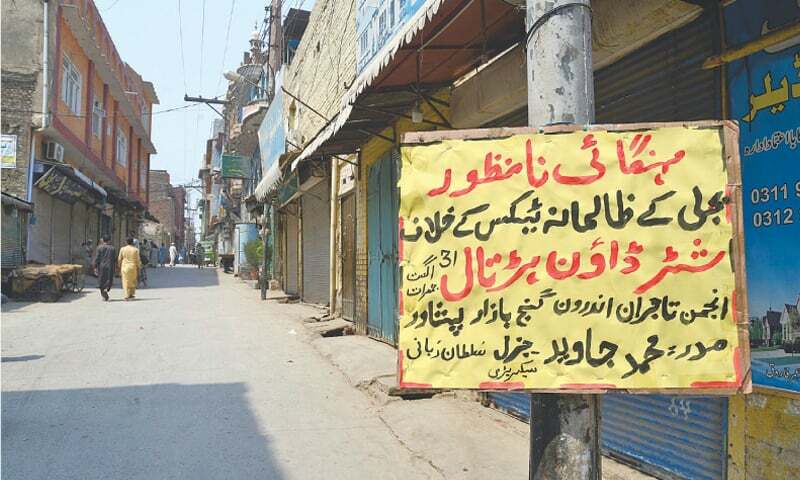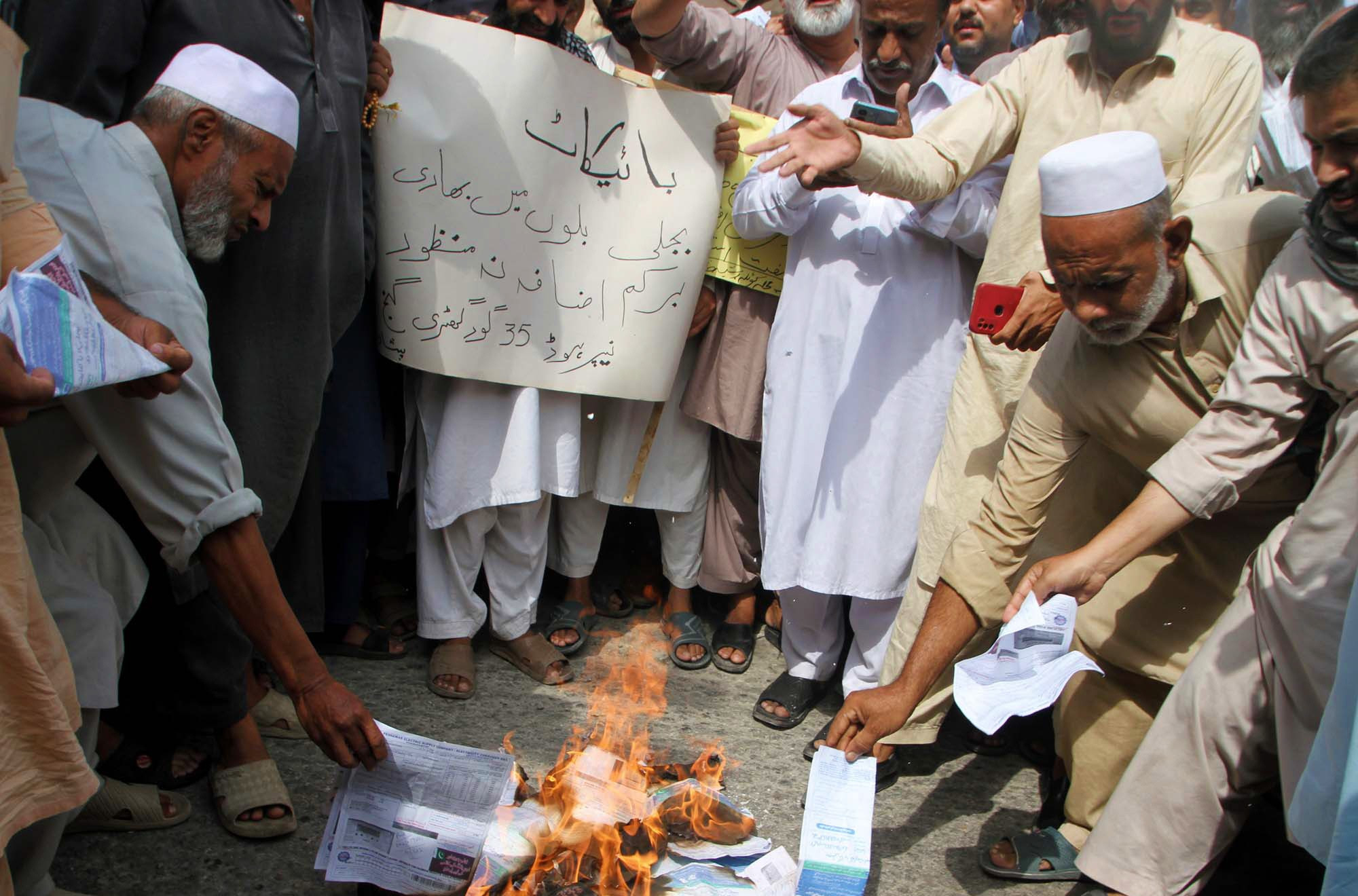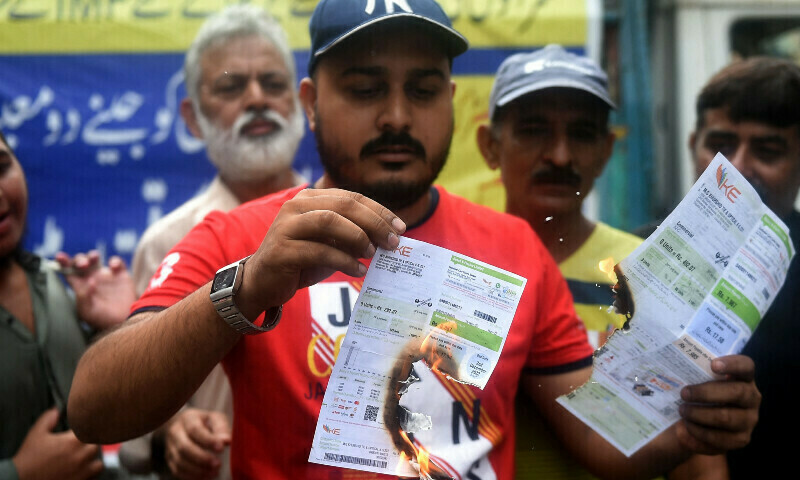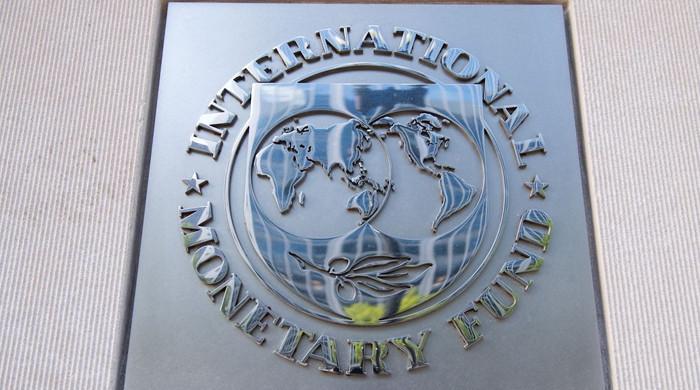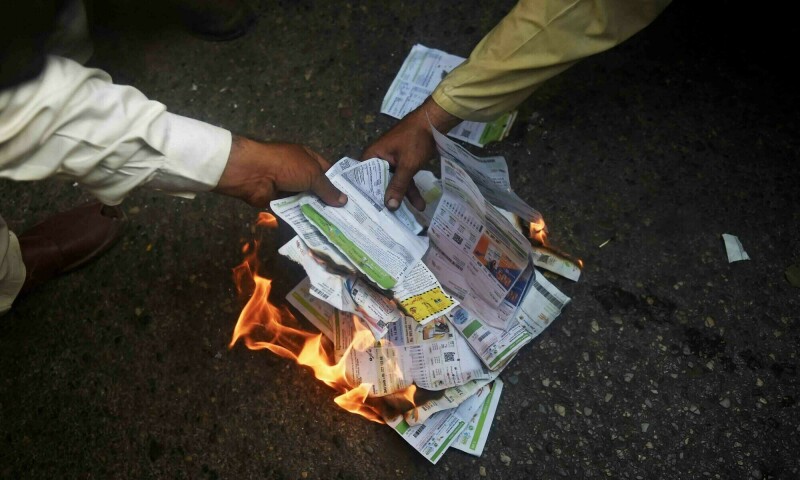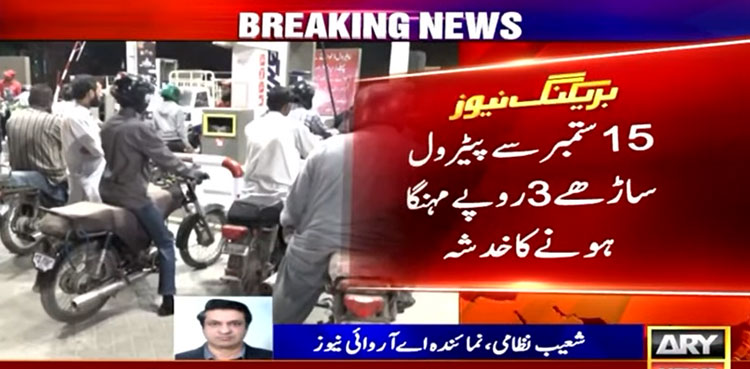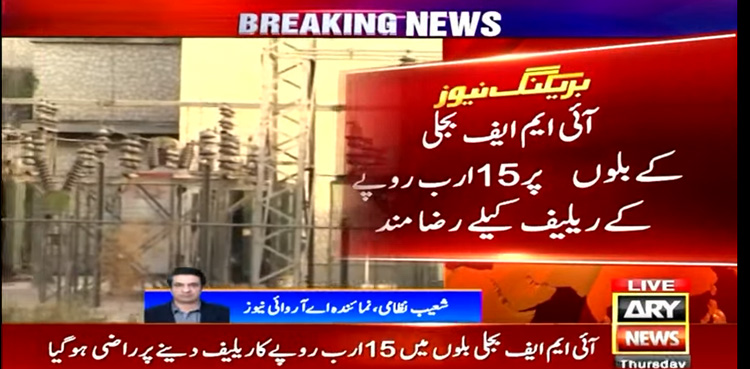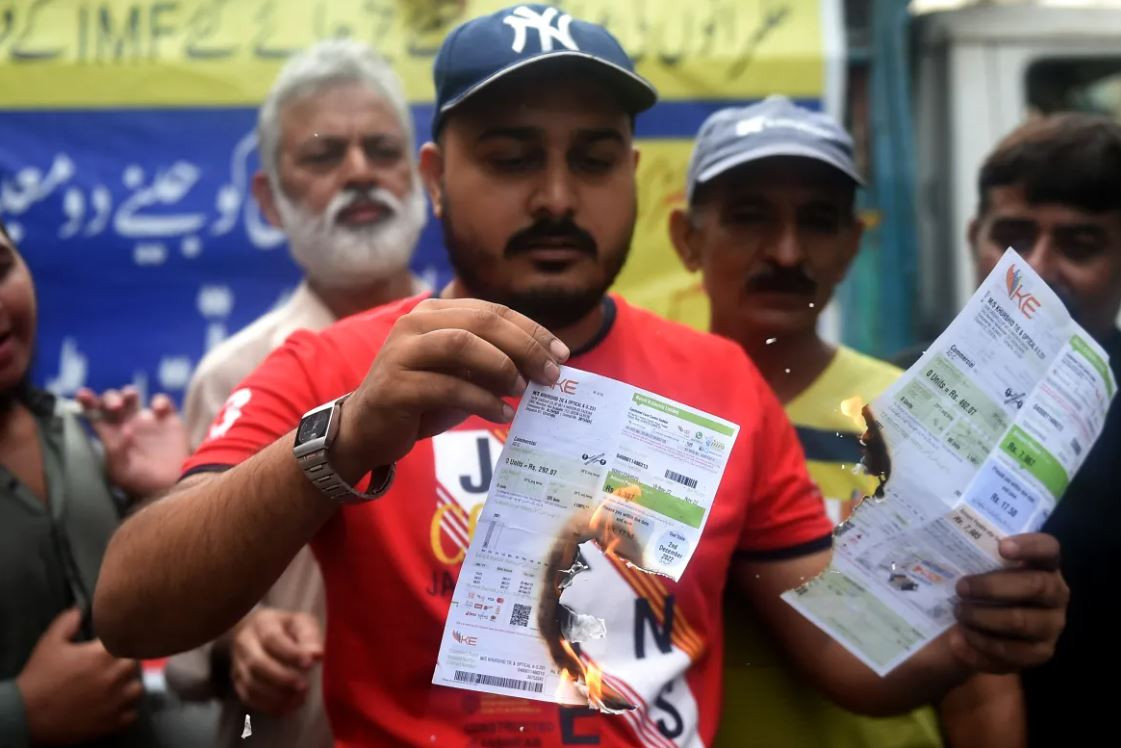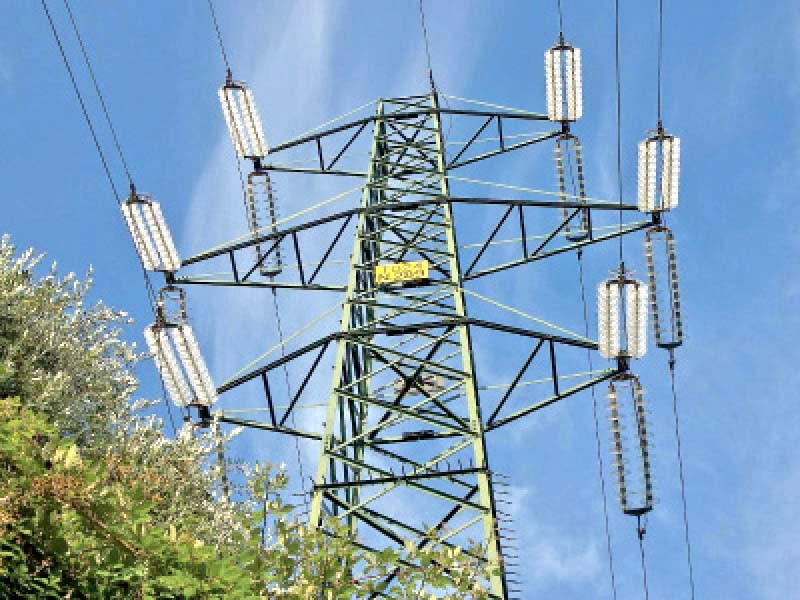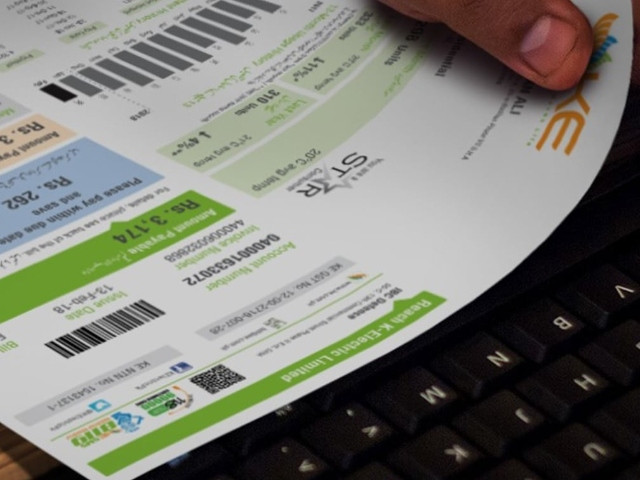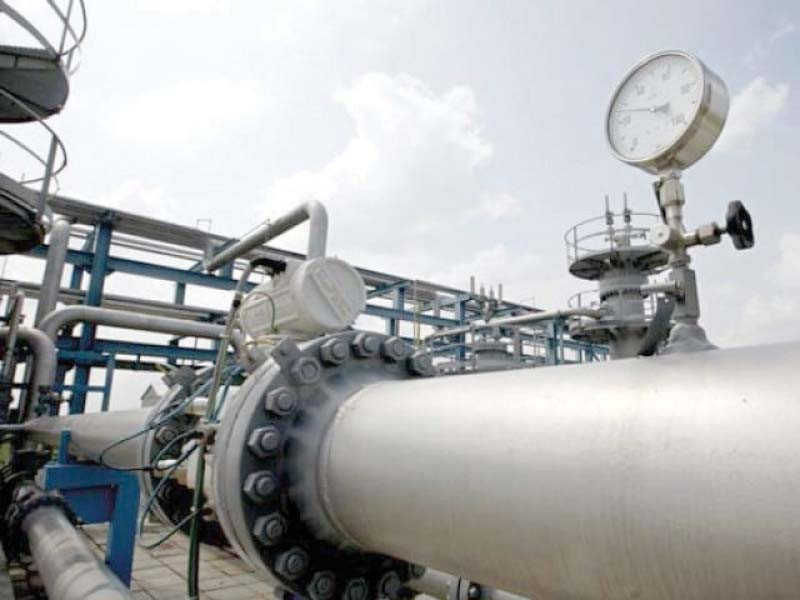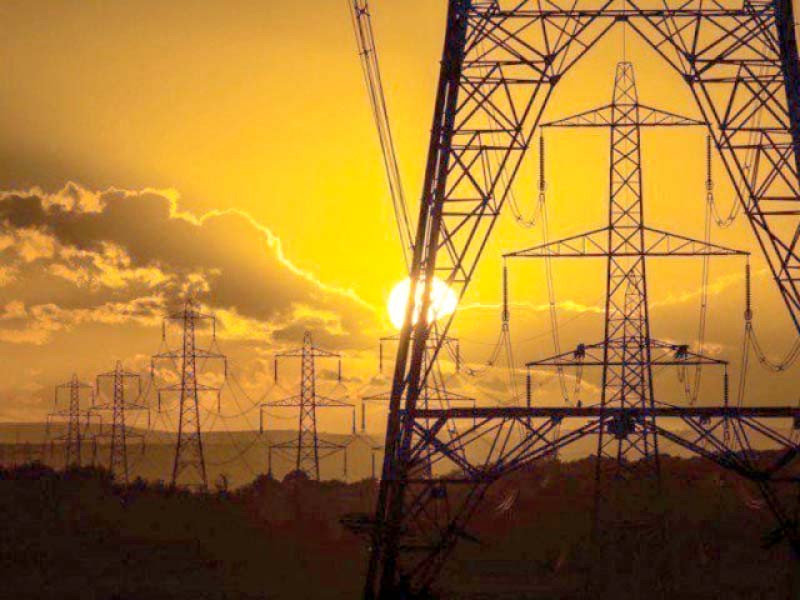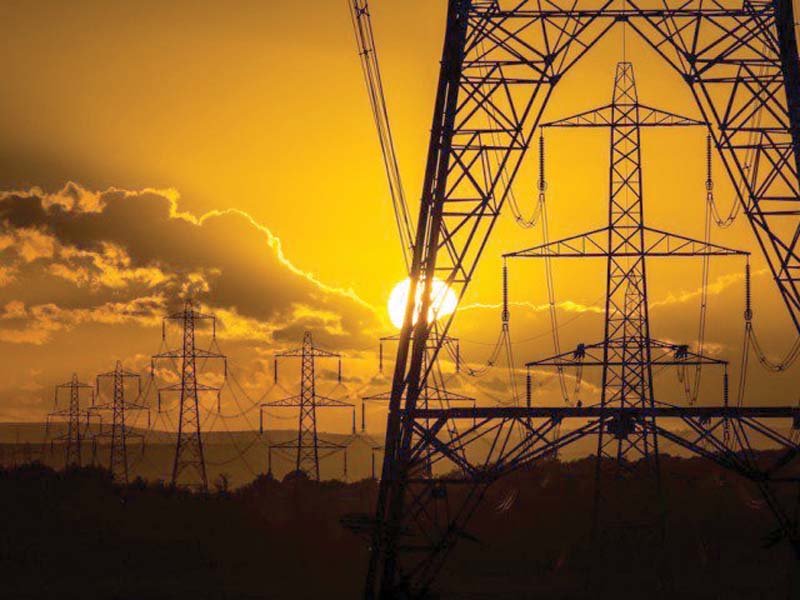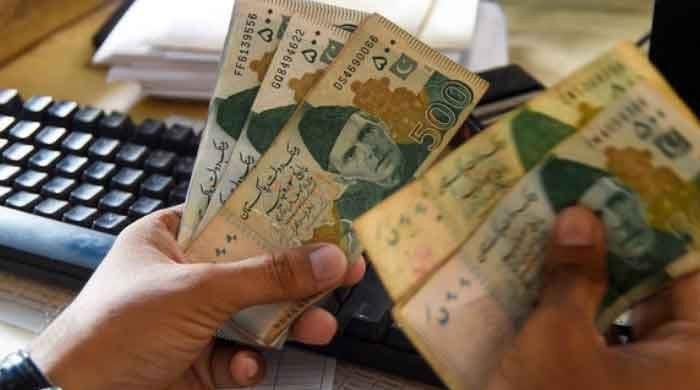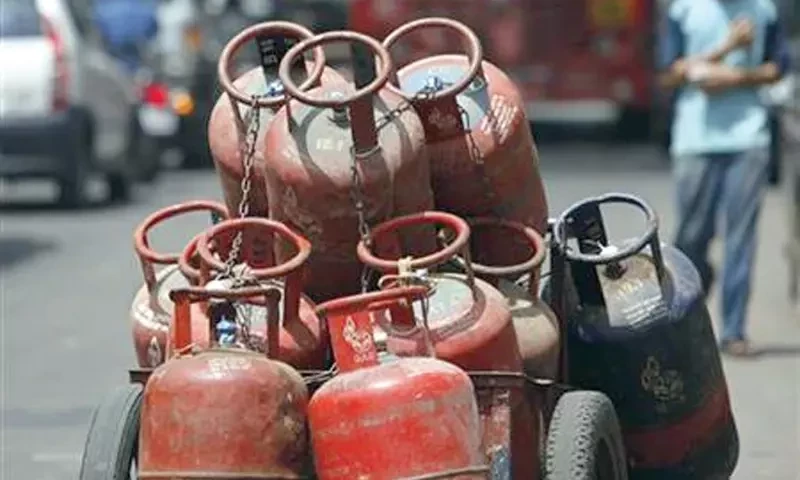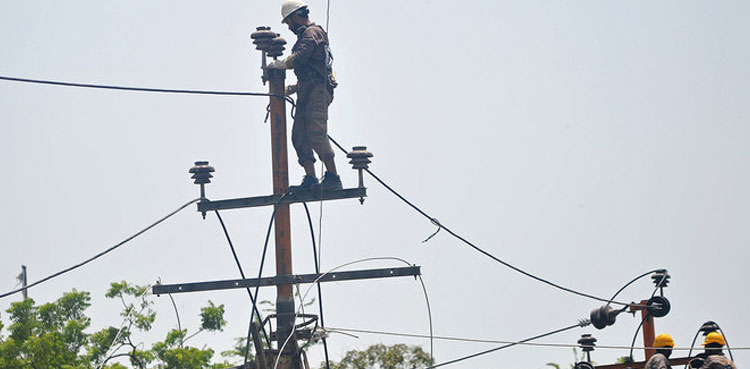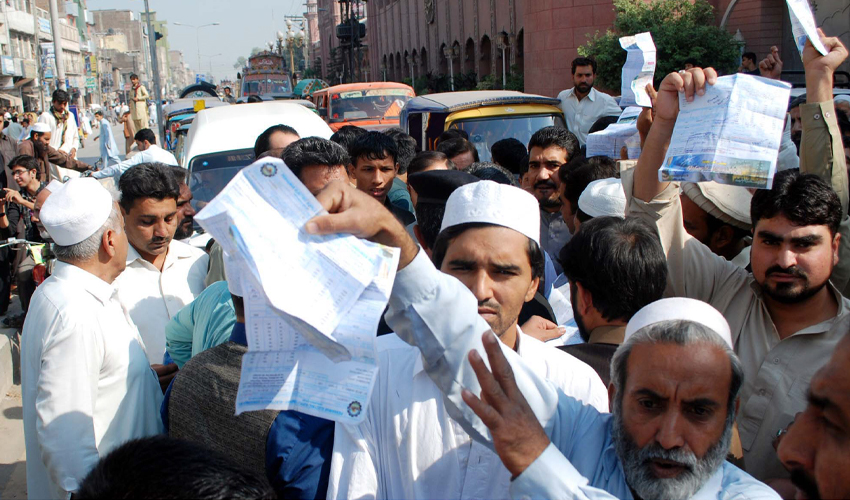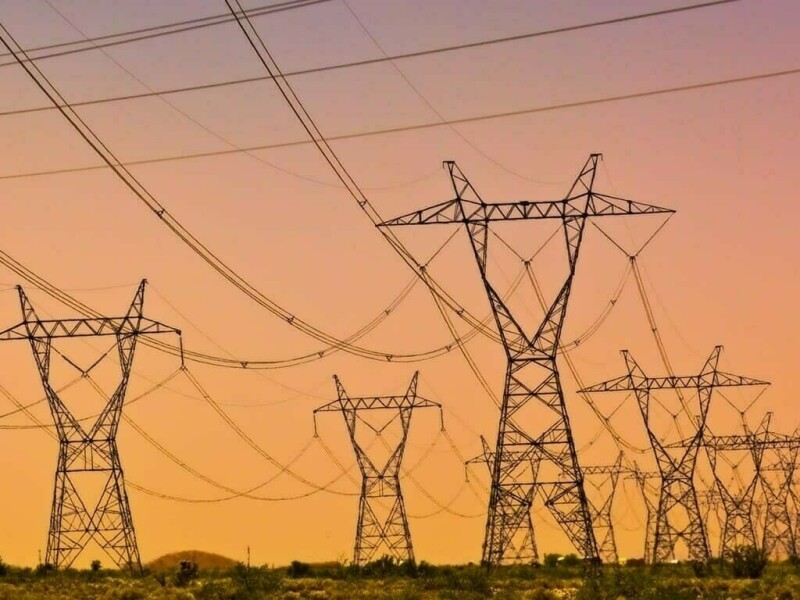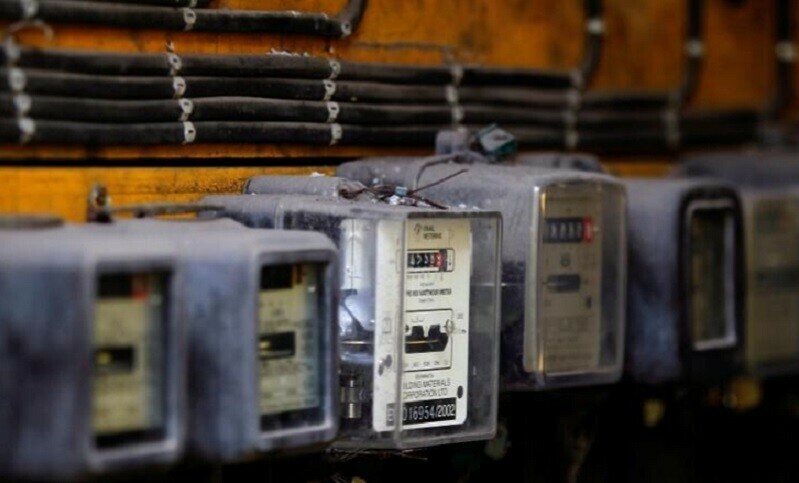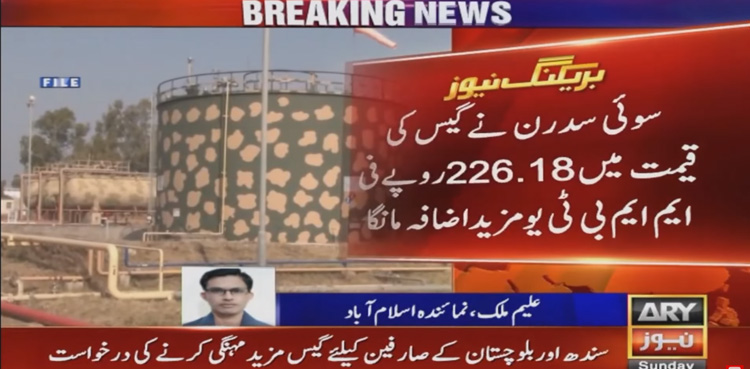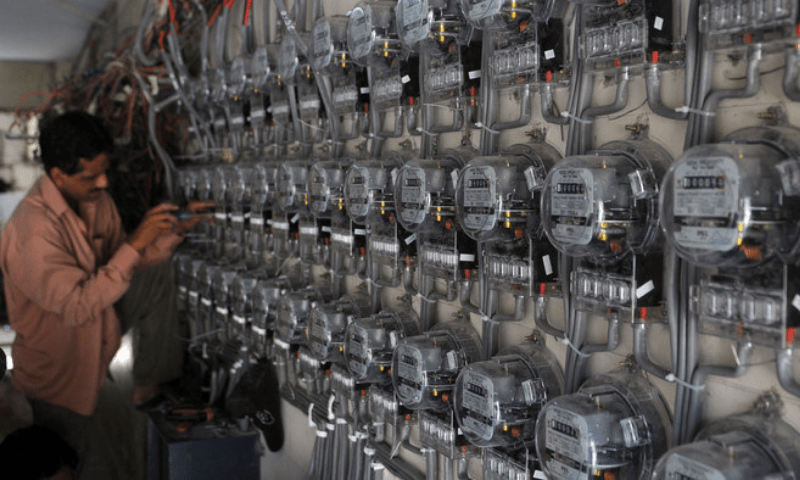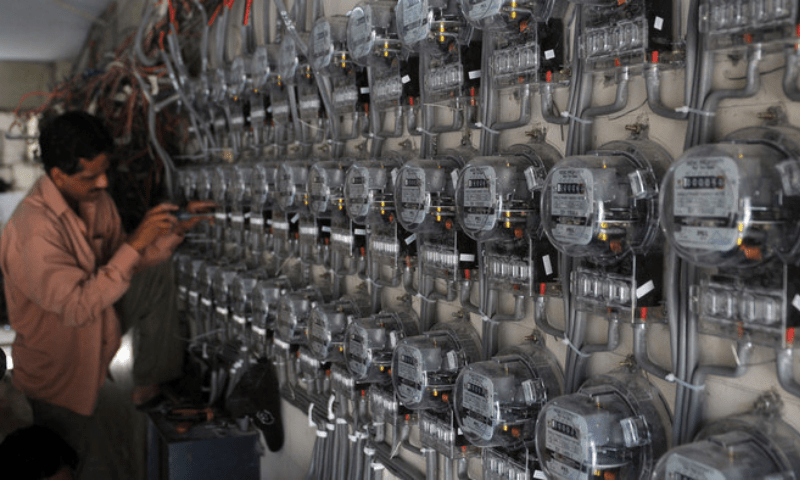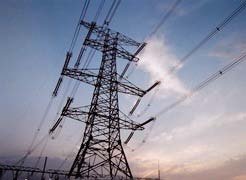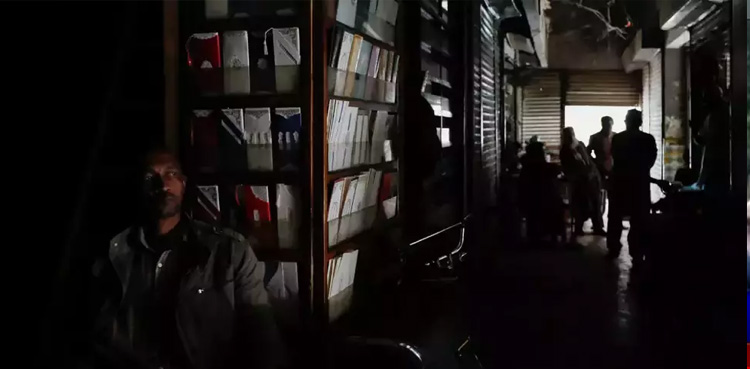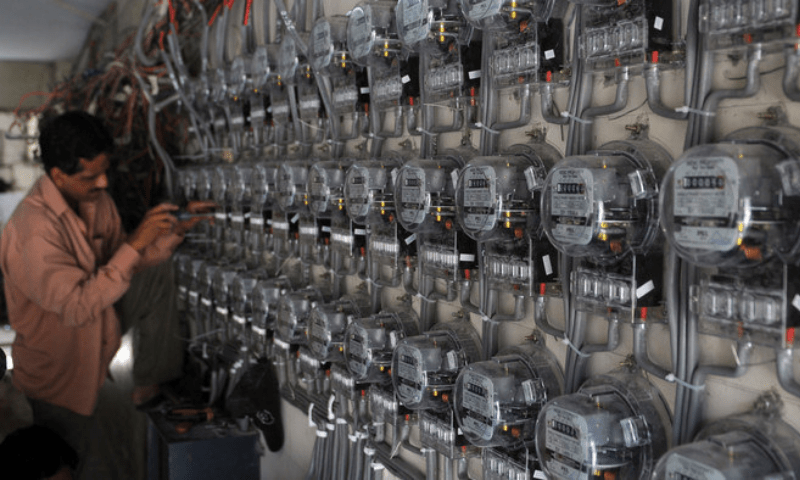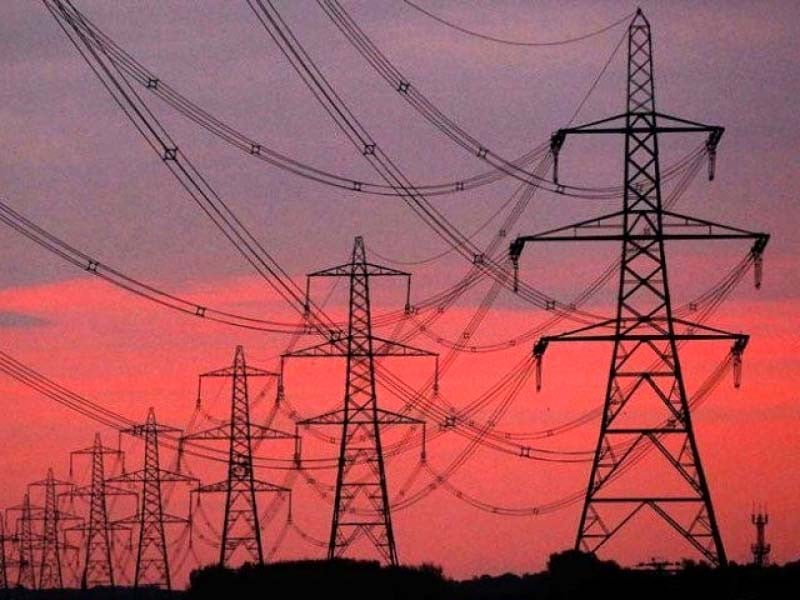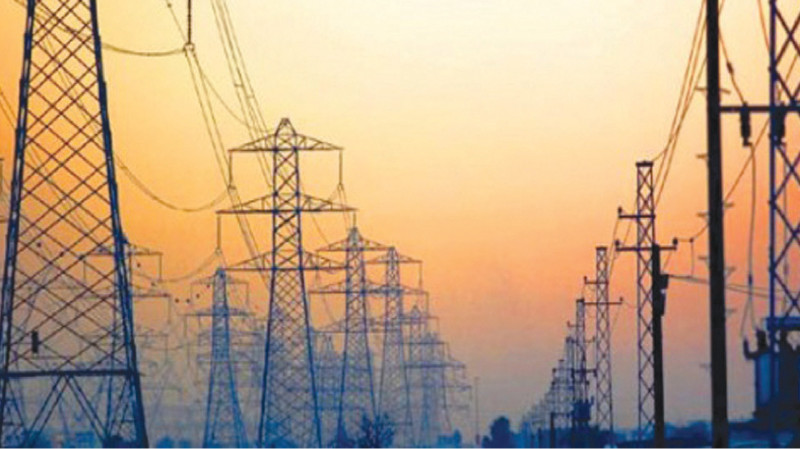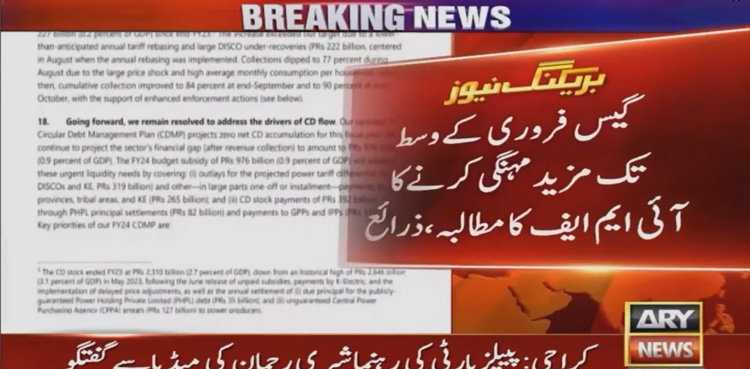Caretaker Prime Minister Anwaarul Haq Kakar has summoned an emergency meeting in Islamabad today regarding electricity rates and consumer bills amid countrywide protests by citizens over inflated power bills.
A day earlier, protests were held in cities across the country due to exorbitant electricity bills on the back of a significant increase in the national average tariff, prompting Kakar to summon an emergency meeting.
The premier will seek briefings from the power division as well as power distribution companies (Discos), to provide “maximum relief to consumers” in this regard.
Meanwhile, the government has also devised a plan to withdraw subsidised electricity availed by Discos and government officers in grade 17 and above.
Caretaker Information Minister Murtaza Solangi held a meeting with Power Division Secretary Rashid Mahmood Langrial on Saturday and discussed the issue of high electricity bills.
The minister confirmed to Dawn that the facility of free electricity units to Discos officers would be discontinued as well and the “summary to take back the facility of free electricity to grade 17 and above officers would be presented in the next cabinet meeting”.
The minister was informed that the increase in electricity tariffs “predominantly affected consumers utilising more than 400 units” per month, and the tariff has remained unchanged for 63.5 per cent of domestic consumers.
Protests held in Multan, Lahore:
Separately, protests were also held in Multan and Lahore’s Shahdara on Sunday against the exorbitant power bills.
Residents and traders in Multan’s Alfalah Market took to the streets to protest against the electricity bills as they held banners and set tyres on fire, hence blocking roads.
Speaking to DawnNewsTV, one of the protestors lamented that he was the sole breadwinner of the family and his bill was Rs24,000 even though he only used “one refrigerator and fans”. He added that last month too his electricity bill was Rs23,000.
Another man said, “Flour is Rs150/kg, petrol is Rs300/litre — tell me where should I go, what should I do?”
Man in Multan laments high power bills. — Screengrab from video provided by author
“Should I give poison to my children?” he asked while visibly enraged. “Why is Wapda (Water and Power Development Authority) given free electricity?”
Stating that his electricity bill was Rs15,000 while house rent was Rs13,000, he asked, “Should I commit robbery? To us peaceful and pious citizens… I ask you to correct yourselves otherwise the public will not let you go.”
He proceeded to assert: “Everyone has the same demand that the power bills be reduced not only by half but by three quarters.”
During a press conference held by the Markazi Tanzeem-e-Tajran Pakistan, it announced initiating a “protest movement” against the excessively high bills.
The union’s chairman, Khawaja Salman Siddiqui said, “If the demands (to lower power prices) are not accepted, we will proceed towards a civil disobedience movement.”
Meanwhile, residents, including women and children, in Lahore’s Shahdara also held protests they burned this month’s bills and vowed to not pay them.
One of the women told DawnNewsTV that she did not have money and her husband was a labourer, hence “could earn a wage some day and not on other days”.
“Do we satisfy our children’s hunger or get them educated?” she asked. She stated that her power bill last month amounted to Rs10,000, therefore she had not paid it. “We cannot pay this huge bill. Help us, do something.”
Another woman asked, “Do we pay [house] rent or [electricity] bills or fulfil the needs of our children?”
MQM-P calls on govt to address public’s concerns.
Meanwhile, the Muttahida Qaumi Movement (MQM-P) called on the government to take immediate steps to address the people’s concerns.
Addressing a press conference in Karachi, Khalid Maqbool Siddiqui urged the caretaker governments in Sindh and the Centre to resolve the issue at the earliest.
He said that the situation was moving towards becoming a law an order situation. He expressed concern over protests turning into violence. “If steps are not taken for immediate relief regarding electricity bills, then — due to the difficulties being faced by the people — we will not only be forced to become a part of their protest but will […] also have to announce some steps.”
Siddiqui lamented that the burden of Wapda’s circular debt was being put on the shoulders of the people of Karachi. He again urged the government to announce immediate relief for the public.
“Hyderabad is seeing loadshedding lasting 12-14 hours. The businessmen there are now forced to protest. The call that they have given, MQM has no other choice but to support this protest if the government does not have a solution.”
Siddiqui said that despite the long hours of loadshedding, the power bills remained the same. “We want to assure the people of Hyderabad that we are standing with you in this issue,” he said.
Dr Farooq Sattar stated that the country was quickly headed towards “anarchy”. He said that the power bills and tariff had gone beyond the people’s reach. “The upper middle class is also not in the position […] to pay power bills.”
Giving an example, he said that if a household had a monthly bill of Rs2,000, then it would be 43-48 per cent more due to taxes. “Taxes on using electricity? Nowhere in the entire world is there tax on using electricity.”
Sattar said that the country and the public were moving towards “civil disobedience”. He said that the party stood will all traders, the people, and the people of Sindh and Karachi.
He called on the government to place this matter before the International Monetary Fund (IMF). “If the country is destabilised, then no one can stop extremism and terrorism from boiling over.”
Experts say taxes cannot be lowered
Experts believe that the taxes and levies on electricity bills cannot be lowered in the short run. Maaz Azam, an analyst at Optimus Capital, said that it was not feasible for the current interim government to reduce or even delay the collection of any tax — especially keeping in view the pressure from the IMF to maintain fiscal balance. He added that it was primarily due to the high base tariff of Rs30 per unit that the electricity bills were inflated.
The report released by the National Electric Power Regulatory Authority (Nepra) highlighted that in the base tariff, Rs23 was regarding Power Purchase Price, and within it, 72 per cent was the capacity payment component, which is the cost of maintaining the power plants operational even when the government was not buying electricity from them.
In July, Nepra while determining the base tariff estimated that inflation in the country would be at 17 per cent while the dollar would be at Rs286 – and both estimates have already been proven wrong.
Analysts fear that there is no solution in sight. Samiullah Tariq, head of research at Pak-Kuwait Investment Company said, “We are in a complicated situation because there had been delays in determining the tariff and making recoveries around 12 months ago; now the key issue is the highly volatile exchange rate.”
As pointed out by the analysts, electricity bills for the month of September can be inflated due to the high base tariff. Public pressure, including street agitations, can be expected in the coming days since the politicians have also joined the bandwagon.
Recently, the Power Division requested Nepra that the Rs5.40 per unit additional quarterly tariff adjustment (QTA) pending for April-June 2023 should not be implemented in this form.
The officials of the power division requested Nepra that consumers should be charged at a rate of Rs3.55 per unit for six months, instead of Rs5.40 per unit for three months, to reduce the price shock on consumers still struggling to absorb 26pc increase in base tariff notified in July. However, Samiullah Tariq said that the only solution in the midterm and long term was to “unbundle the electricity and gas utility companies and privatise them without any political or other interferences”.
A day earlier, protests were held in cities across the country due to exorbitant electricity bills on the back of a significant increase in the national average tariff, prompting Kakar to summon an emergency meeting.
The premier will seek briefings from the power division as well as power distribution companies (Discos), to provide “maximum relief to consumers” in this regard.
Meanwhile, the government has also devised a plan to withdraw subsidised electricity availed by Discos and government officers in grade 17 and above.
Caretaker Information Minister Murtaza Solangi held a meeting with Power Division Secretary Rashid Mahmood Langrial on Saturday and discussed the issue of high electricity bills.
The minister confirmed to Dawn that the facility of free electricity units to Discos officers would be discontinued as well and the “summary to take back the facility of free electricity to grade 17 and above officers would be presented in the next cabinet meeting”.
The minister was informed that the increase in electricity tariffs “predominantly affected consumers utilising more than 400 units” per month, and the tariff has remained unchanged for 63.5 per cent of domestic consumers.
Protests held in Multan, Lahore:
Separately, protests were also held in Multan and Lahore’s Shahdara on Sunday against the exorbitant power bills.
Residents and traders in Multan’s Alfalah Market took to the streets to protest against the electricity bills as they held banners and set tyres on fire, hence blocking roads.
Speaking to DawnNewsTV, one of the protestors lamented that he was the sole breadwinner of the family and his bill was Rs24,000 even though he only used “one refrigerator and fans”. He added that last month too his electricity bill was Rs23,000.
Another man said, “Flour is Rs150/kg, petrol is Rs300/litre — tell me where should I go, what should I do?”
Man in Multan laments high power bills. — Screengrab from video provided by author
“Should I give poison to my children?” he asked while visibly enraged. “Why is Wapda (Water and Power Development Authority) given free electricity?”
Stating that his electricity bill was Rs15,000 while house rent was Rs13,000, he asked, “Should I commit robbery? To us peaceful and pious citizens… I ask you to correct yourselves otherwise the public will not let you go.”
He proceeded to assert: “Everyone has the same demand that the power bills be reduced not only by half but by three quarters.”
During a press conference held by the Markazi Tanzeem-e-Tajran Pakistan, it announced initiating a “protest movement” against the excessively high bills.
The union’s chairman, Khawaja Salman Siddiqui said, “If the demands (to lower power prices) are not accepted, we will proceed towards a civil disobedience movement.”
Meanwhile, residents, including women and children, in Lahore’s Shahdara also held protests they burned this month’s bills and vowed to not pay them.
One of the women told DawnNewsTV that she did not have money and her husband was a labourer, hence “could earn a wage some day and not on other days”.
“Do we satisfy our children’s hunger or get them educated?” she asked. She stated that her power bill last month amounted to Rs10,000, therefore she had not paid it. “We cannot pay this huge bill. Help us, do something.”
Another woman asked, “Do we pay [house] rent or [electricity] bills or fulfil the needs of our children?”
MQM-P calls on govt to address public’s concerns.
Meanwhile, the Muttahida Qaumi Movement (MQM-P) called on the government to take immediate steps to address the people’s concerns.
Addressing a press conference in Karachi, Khalid Maqbool Siddiqui urged the caretaker governments in Sindh and the Centre to resolve the issue at the earliest.
He said that the situation was moving towards becoming a law an order situation. He expressed concern over protests turning into violence. “If steps are not taken for immediate relief regarding electricity bills, then — due to the difficulties being faced by the people — we will not only be forced to become a part of their protest but will […] also have to announce some steps.”
Siddiqui lamented that the burden of Wapda’s circular debt was being put on the shoulders of the people of Karachi. He again urged the government to announce immediate relief for the public.
“Hyderabad is seeing loadshedding lasting 12-14 hours. The businessmen there are now forced to protest. The call that they have given, MQM has no other choice but to support this protest if the government does not have a solution.”
Siddiqui said that despite the long hours of loadshedding, the power bills remained the same. “We want to assure the people of Hyderabad that we are standing with you in this issue,” he said.
Dr Farooq Sattar stated that the country was quickly headed towards “anarchy”. He said that the power bills and tariff had gone beyond the people’s reach. “The upper middle class is also not in the position […] to pay power bills.”
Giving an example, he said that if a household had a monthly bill of Rs2,000, then it would be 43-48 per cent more due to taxes. “Taxes on using electricity? Nowhere in the entire world is there tax on using electricity.”
Sattar said that the country and the public were moving towards “civil disobedience”. He said that the party stood will all traders, the people, and the people of Sindh and Karachi.
He called on the government to place this matter before the International Monetary Fund (IMF). “If the country is destabilised, then no one can stop extremism and terrorism from boiling over.”
Experts say taxes cannot be lowered
Experts believe that the taxes and levies on electricity bills cannot be lowered in the short run. Maaz Azam, an analyst at Optimus Capital, said that it was not feasible for the current interim government to reduce or even delay the collection of any tax — especially keeping in view the pressure from the IMF to maintain fiscal balance. He added that it was primarily due to the high base tariff of Rs30 per unit that the electricity bills were inflated.
The report released by the National Electric Power Regulatory Authority (Nepra) highlighted that in the base tariff, Rs23 was regarding Power Purchase Price, and within it, 72 per cent was the capacity payment component, which is the cost of maintaining the power plants operational even when the government was not buying electricity from them.
In July, Nepra while determining the base tariff estimated that inflation in the country would be at 17 per cent while the dollar would be at Rs286 – and both estimates have already been proven wrong.
Analysts fear that there is no solution in sight. Samiullah Tariq, head of research at Pak-Kuwait Investment Company said, “We are in a complicated situation because there had been delays in determining the tariff and making recoveries around 12 months ago; now the key issue is the highly volatile exchange rate.”
As pointed out by the analysts, electricity bills for the month of September can be inflated due to the high base tariff. Public pressure, including street agitations, can be expected in the coming days since the politicians have also joined the bandwagon.
Recently, the Power Division requested Nepra that the Rs5.40 per unit additional quarterly tariff adjustment (QTA) pending for April-June 2023 should not be implemented in this form.
The officials of the power division requested Nepra that consumers should be charged at a rate of Rs3.55 per unit for six months, instead of Rs5.40 per unit for three months, to reduce the price shock on consumers still struggling to absorb 26pc increase in base tariff notified in July. However, Samiullah Tariq said that the only solution in the midterm and long term was to “unbundle the electricity and gas utility companies and privatise them without any political or other interferences”.









